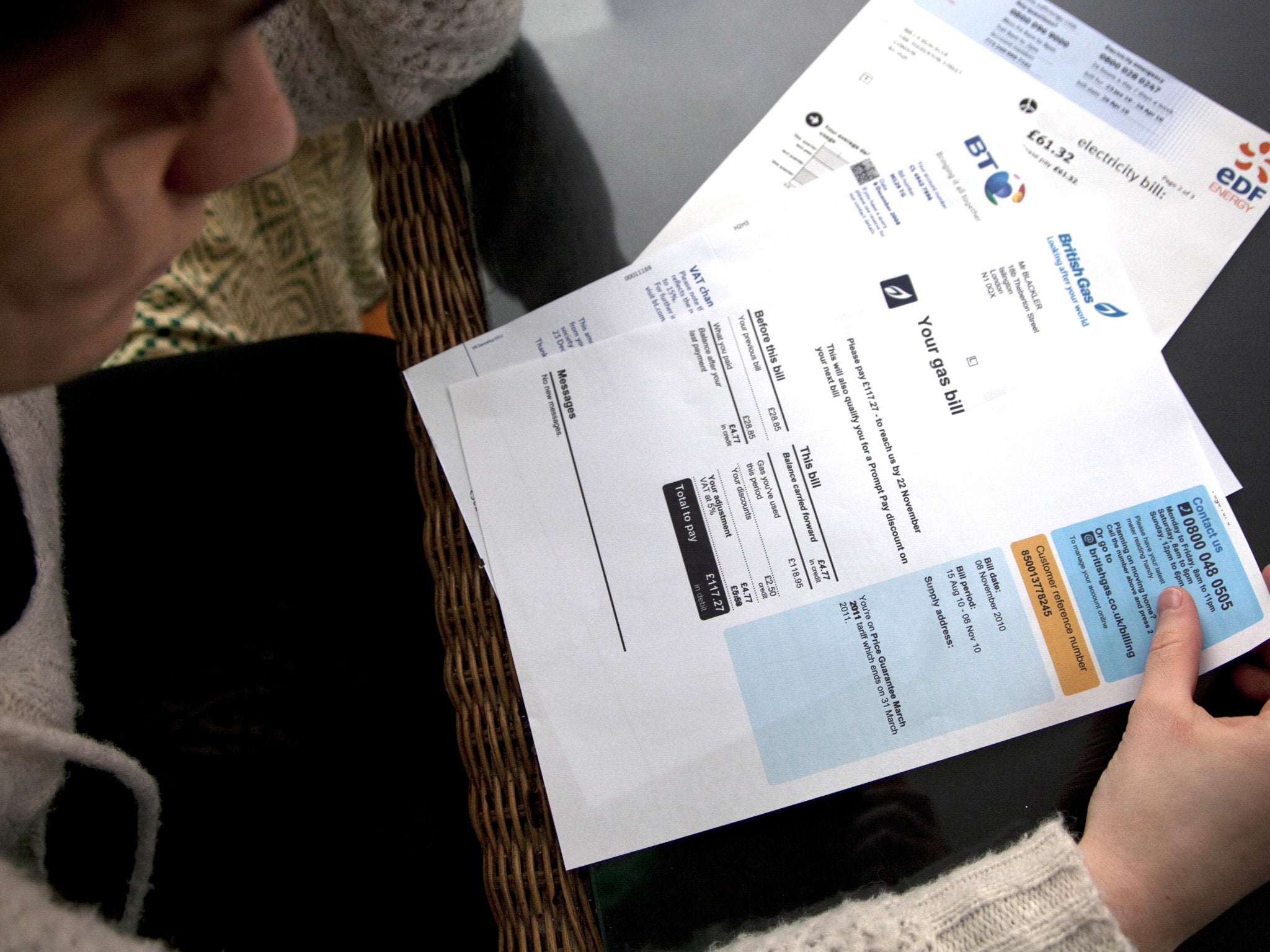Energy bills could rise by £600 if the UK remains dependent on gas

Investing now in low-carbon and renewable energy is likely to save householders as much as £600 a year on their electricity bills in the future, the Government's official climate advisers say in a new report.
In particular, diversifying away from gas as a power generating source means that British energy prices will be much lower while the international gas price continues to soar, according to the Committee on Climate Change (CCC).
The new study appears at odds with the enthusiasm of the Chancellor, George Osborne, for a new “dash for gas” based on exploitation of shale gas, produced by the controversial method of hydraulic fracturing, or “fracking” of the shale rock in which the gas is contained. An official go-ahead for shale gas exploitation is expected imminently.
But the development of low-carbon, non-fossil-fuel energy sources such as wind and nuclear power is in fact an insurance policy against future gas prices being driven very high by growing demand – even though the low-carbon developments will themselves be costly, the CCC says.
Annual household energy bills are likely to rise on average by £100 per year by 2020 to support them, the committee says. But this investment should be set against future increases which might be six times greater, if Britain were to continue to rely on conventional gas for electricity generation,
Current average bills for a “dual fuel” household, which uses electricity for lighting and appliances and gas for heating, are just under £1,000 annually, and the cost of supporting investment in low-carbon generation such as renewables currently represents about £35 of this, the CCC says in its report.
This will rise to about £40 by 2015, and then to £100 by 2020, as bigger low-carbon investment comes on stream, such as big new nuclear power plants and the experimental technology of carbon capture and storage, which captures the greenhouse gases which are believed to be causing climate change and stores them deep underground.
Yet in fact these sums represent an insurance policy against much bigger increases which would be likely if Britain were mainly reliant on gas-fired power generation, as gas prices are likely to soar because of rising world demand, the CCC says, perhaps adding as much as £600 to household annual bills in coming decades.
“A strategy which invests in low-carbon technologies provides of portfolio of energy sources as insurance against the risk of high gas prices,” said the committee chairman, Lord Deben (the former Conservative Environment Secretary John Gummer). “It lessens the impact of household bills in the long term and enhances the competitiveness of UK industry.”
Professor Kevin Anderson, Deputy Director of the Tyndall Centre for Climate Change Research at the University of Manchester, said lasts night: “The CCC’s latest report puts a well-placed boot in the popular view that low-carbon electricity is bad for the pockets of householders and UK Plc.
“Whilst Machiavellian journalists and sceptics will recite the “green energy costs money and jobs” mantra – the more careful and candid scribbler will conclude that renewable and low-carbon energy reduces costs as well as carbon.
“Ultimately, the CCC makes a robust defence of the position that low-carbon electricity is both good for our wallets and our children; a message that powerful fossil-fuelled groups don’t want us to hear.”
“This report confirms that George Osborne’s dash for gas could cripple households with bills up to £600 more in coming decades than if we invest in low carbon energy,” said the policy director of Greenpeace, Doug Parr.
“The Chancellor’s gas gamble is risking people’s wallets as well as the planet. Clean energy will not only insulate bill payers from volatile gas prices and ensure the UK meets its climate targets, but it will mean new green jobs and industries.”
The report finds that the primary cause of energy bill increases since 2004 has been the increase in the international gas price, which makes up 62 per cent of the rise in the typical household bill.
Join our commenting forum
Join thought-provoking conversations, follow other Independent readers and see their replies
Comments
Bookmark popover
Removed from bookmarks